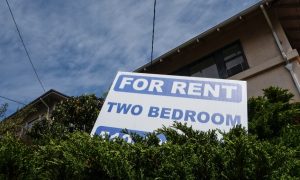Whatever your reason for moving, figuring out what to do with your current home may not be as simple as listing it. Depending on your financial situation and your local housing market, you may be better off renting it out than selling it, or vice versa.
If you’re caught in the “Should I sell or rent my house?” debate, let’s take a look at what factors to consider, including the costs.
Should I sell or rent my house?
The decision whether to sell or rent your house shouldn’t be taken lightly. Take a look at the following scenarios and weigh the pros and cons of each to help determine which path to take.
If your move is temporary
If your move is short-term and you plan on returning to your current city in the future, you may want to rent out your home. This can provide some security knowing there’s a place for you to live when you return, and it may cost less than selling it and purchasing another home at a later date.
On the other side of things, if you’re leaving the area permanently, then selling to free up your home equity for a new home in a new place can be a good idea. This leads us to…
If you need access to your home’s equity
If your ability to buy a new home relies on accessing equity currently tied up in your home, then selling it is the best way of doing so. That way, you can take the proceeds from the home sale and put it towards a down payment or moving expenses.
If you have no interest in being a landlord
Managing a rental property can be time-consuming and challenging. Are you handy and able to make some repairs yourself? If not, do you have a network of affordable contractors you can reach out to in a pinch? Consider whether you want to take on the added responsibility of being a landlord, which means screening tenants and fielding issues, among other responsibilities, or paying for a third party to take care of things instead.
If you want to buy a home while you rent the other one
If you go the route of renting your current home and want to buy another one with a mortgage, keep in mind that lenders will consider rental income when determining your financing. In some cases, a lender will only allow a portion of your rental income, typically up to 75 percent, to be counted as an income source.
If you expect home values will go up in your area
It’s impossible to foresee with 100 percent accuracy what the housing market in your area will look like. That being said, you may be able make an informed prediction. If you expect that your current home’s value will increase within a few years or less, you might want to consider renting it out and then selling it later on to take advantage of appreciation.
If you’ll pay capital gains tax
If you’re thinking of selling your home instead of renting it out, you’ll be able to exclude up to $250,000 of capital gains from the sale (or up to $500,000 for married filers) from your income, if the home was your primary residence for two out of the last five years.
If you’re underwater on your mortgage
You may not be able to afford to sell your home because you’re underwater on your mortgage, meaning your loan balance is greater than the home’s current market value. You may not have enough equity to sell the home, unless you’re willing and able to pay off the loss in cash. In this case, turning your home into a rental property may provide the opportunity to gain some equity before selling it in the future.
Renting vs. selling: Costs to consider
Both renting and selling a home will incur costs. One of the most important considerations to make is whether the rental income you’d receive for your home is enough to cover the mortgage and upkeep. Owning and maintaining a rental property comes with costs, and you want the endeavor to be as profitable as possible.
To determine how much rental income you can reasonably expect to earn, take a look at what other similar properties are charging and weigh that against the costs of owning and maintaining the property – mortgage payments, maintenance, repairs, taxes, hiring a property management company. From there, you can gauge whether you’ll be able to recoup your expenses and then some.
Here’s an overview of costs so you can see which makes the most sense for you financially.
Costs to rent a home
- Mortgage: Even though you’ll be renting your home (and presumably generating income), you’re still responsible for ensuring the mortgage is paid, which may not be entirely covered by the rent you receive.
- Home maintenance and repairs: You still own the home, so you’ll need to keep up with routine maintenance to ensure it’s fit for tenants. As a rule of thumb, budget at least 1 percent of the home’s value every year (more if it’s an older property) to pay for maintenance. You’ll also need to budget for repairs and replacement of essential parts of the home, such as appliances, doors, windows and the roof.
- Property taxes: Property tax rates vary widely depending on location, but at minimum you can expect the rate to increase as your home’s assessed value rises.
- Advertising: To find a tenant, you’ll have to get the word out. The cost to do this will vary depending on where you advertise, such as on a website or in the newspaper, and whether you work with a real estate agent to market the property.
- Background and credit checks: Every credit and rental history report you run for a prospective tenant (also known as tenant screening) will cost you – though you may be able to pass this expense onto the tenant. The cost generally ranges from $15 to $40.
- Property management fees: If you need to hire a property manager, that will cost you, as well. These companies tend to charge a percentage of the rent price, typically 10 percent.
- Tax filing and accounting fees: Even if you do your own bookkeeping for expenses pertaining to the rental, you’ll likely incur costs for filing taxes using tax preparation software or if hiring an accountant.
- HOA fees: If your home belongs to an association, you’ll also be responsible for HOA dues, which can range anywhere from $25 to $1,000 or more a month.
- Landlord insurance: Landlord insurance can cover certain costs, such as damage to the home or in the event someone is injured on the property. You can expect this to cost roughly 25 percent more than the typical homeowners insurance policy.
- Vacancies: Consider, too, the cost of vacancies between tenants. If a tenant moves out and you don’t have a replacement, that’s income you’re losing out on.
Costs of selling a home
- Home improvements: To get your home in shape to sell, you’ll likely have a few costs to pay for. These might include the cost to enhance the property’s curb appeal and make any necessary repairs. You may also be considering doing a home inspection (also known as a pre-listing inspection) to find out what fixes you’ll need to make, which will add to your costs.
- Real estate commission: At up to 6 percent of your home’s sale price, the commission you pay to your listing agent could be your biggest expense when selling your home.
- Home staging: While not necessary, staging your home can increase your home’s desirability to potential buyers and net you more as a result. Depending on the size of your home and other factors, staging can cost anywhere from $1,000 to $8,000 or more.
- Utilities: You’ll still be responsible for paying your utility bills until the closing date.
- Home loan payoff: Once you’ve sold the home, the proceeds will need to go towards the remainder of your mortgage.
- Closing fees: In some cases, you may be asked to take on some of the closing costs, such as prorated property taxes and attorney fees.
Bottom line
Deciding whether you should rent or sell your home depends on both monetary and lifestyle factors. To help guide your decision, consider what your financial situation is like, whether you’ll return to your current location or if you’re interested in being a landlord.
Once you’ve determined whether to rent or sell, be sure to compare different types of services, such as mortgage lenders and property management companies, so you’re making the most strategic moves with your money.
The post Should I sell or rent my house? appeared first on Bankrate and is written by Sarah Li Cain
Original source: Bankrate






